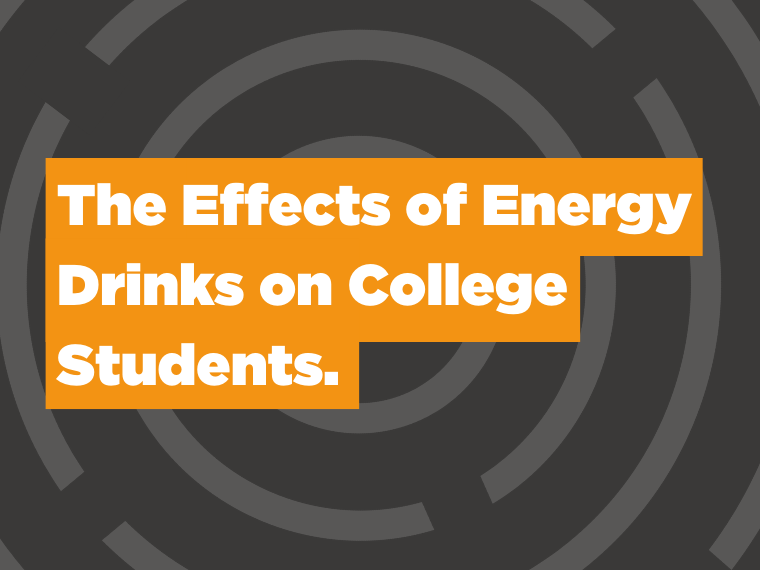
Blog: The Effects of Energy Drinks on College Students
Since energy drinks gained popularity in the UK in the mid 90’s, the level of consumption has increased substantially. Red Bull is a great example of energy drinks prolific rise, as it has grown to become the bestselling provider in the world with 7.9 billion cans being sold in 2020 alone.
Ingredients
A brief overview of the contents of energy drinks reveals that caffeine, glucuronolactone (i.e. glucose), pantheon, niacin, taurine, B-complex vitamins, inositol, panthenol and inositol are the most common ingredients of the drinks.
Other drinks include a concoction of powerful herbal ingredients added to the existing components to make the drinks more powerful and give stronger, longer-lasting effects.
Nutritionists state that the stimulants used in making these energy drinks are often well above what is recommended for the daily intake for the average person. Consequently, some of the ingredients are not regulated to guarantee the safety of the users.
Misuse
The greatest danger of consuming energy drinks starts with unregulated levels of caffeine. The caffeine content in energy drinks is often so high it can often result in adverse health effects on consumers, especially when multiple drinks are consumed in short periods.
Other negative impacts that have been recorded can include:
- Caffeine sensitivity tolerance, can cause skin irritation, raised blood pressure, heart palpitations, increase in heart rate, and uncontrolled panic
- When not used for sports performance, energy drinks can actually cause a lack of concentration and hyperactivity when studying due to the excessive amounts of caffeine contained within each drink
- The main disadvantage of most sports drinks is their high caloric content. These calories come from sugars, which usually make up 4 to 9 percent of the drink.
High levels of consumption have also been linked to headaches, sleep problems, alcohol use, smoking, irritability and in some cases exclusion from educational facilities.
Summary
In summary, it is recommended that energy drinks should not be used as a study aid or as part of exam preparation.
They are designed to aid the performance of professional athletes and can have many positive impacts when consumed properly, such as:
- Provides a high amount of energy for sports performance
- Low in calories
- Increase focus on sports performance
- Increased blood flow allows more oxygenated blood cells to muscles enhancing performance when lifting and running





